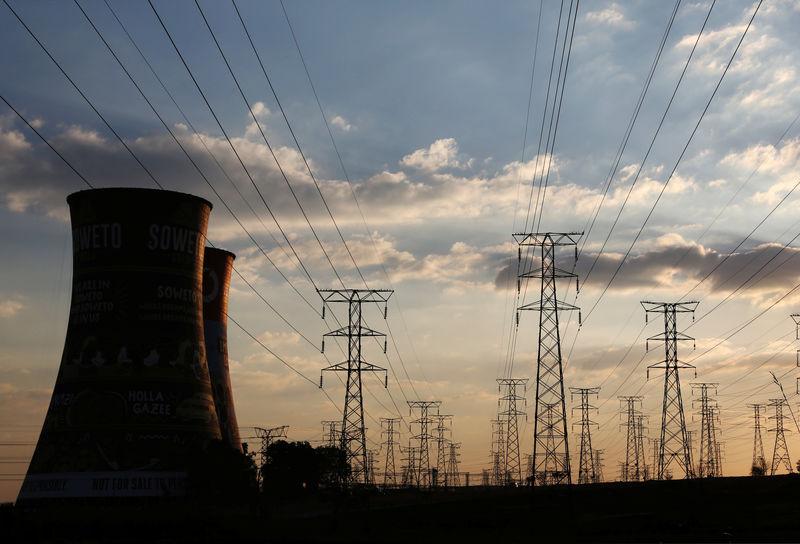
Cyril Ramaphosa says privatization is part of his plan to address energy shortages

South African President Cyril Ramaphosa has announced changes to the country’s electricity industry to address energy shortages and reduce reliance on debt-stricken state power utility Eskom.
In his state-of-the-nation address in Cape Town on Thursday, the president announced that the government will invite private companies to submit bids to supply additional renewable energy to the grid, while businesses will be allowed to produce unlimited electricity for their own use.
Eskom provides about 95% of South Africa’s power but isn’t generating enough income to cover its costs.
The lack of the power stations failing to generate enough electricity to meet demand has resulted in rolling blackouts and with several of its plants due to be retired over the next few years, urgent intervention is needed to avert an even deeper crisis.
“The load shedding of the last few months has had a debilitating effect on our country. It has severely set back our efforts to rebuild the economy and to create jobs”
“Every time it occurs, it disrupts people’s lives, causing frustration, inconvenience, hardship,” the president said.
The president said while load-shedding is unavoidable, it must be undertaken in a manner that is predictable and minimizes disruption and the cost to firms and households.
The president also said that Eskom has started with the process of divisionalising its three operating activities – generation, transmission and distribution – each of which will have its own board and management structures. This will ensure Eskom that generates electricity at affordable prices for communities and industries.
Ramaphosa also added that the Presidential Commission on Climate Change will ensure that the nation moves towards a low carbon growth trajectory.
“We will finalise the Climate Change Bill, which provides a regulatory framework for the effective management of inevitable climate change impacts by enhancing adaptive capacity, strengthening resilience and reducing vulnerability to climate change – and identifying new industrial opportunities in the green economy,” he said.
Other measures to be undertaken to increase generation capacity outside of Eskom:
- A Section 34 Ministerial Determination will be issued to give effect to the Integrated Resource Plan 2019, enabling the development of additional grid capacity from renewable energy, natural gas, hydro power, battery storage and coal.
- Procurement of emergency power from projects that can deliver electricity into the grid within 3 to 12 months from approval will be initiated
- The National Energy Regulator will continue to register small scale distributed generation for own use of under 1 MW, for which no licence is required.
- The National Energy Regulator will ensure that all applications by commercial and industrial users to produce electricity for own use above 1MW are processed within the prescribed 120 days.






